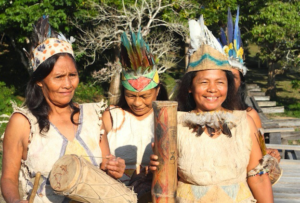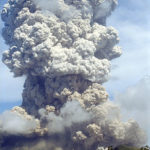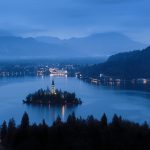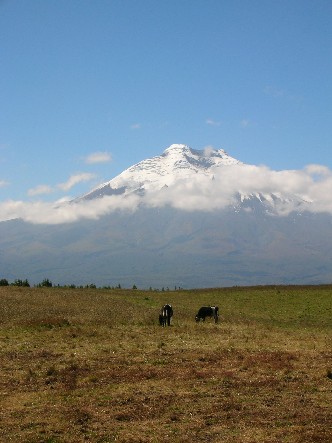
By Richard Ammon
GlobalGayz.com
January 2018
Remarkable Changes
Most people who travel to Ecuador come to experience the variety of landscapes, climates, cultures, fauna and flora that this small country has to offer–including the unique Galapagos Islands (where we visited but there is no gay life among the old tortoises, spikey iguanas and many Darwin finches.)
However the rest of Ecuador has a great deal to offer. About the size of the state of Colorado, Ecuador has the highest population density of any South American country and also has a high proportion of indigenous people with their unique cultures and languages.
Added to that, Ecuador offers a tropical coast-line with Guayaquil as the largest city in Ecuador; snow-capped volcanoes such as Cotopaxi (photo right) and Chimborazo with an altitude of approximately 6000m; highland market towns like Otavalo and Saquisili; the historic colonial town of Cuenca; Amazon rain-forest with its unique bio-diversity, and a capital city located practically on the Equator which is a UNESCO World Heritage site.
Gay Ecuador has undergone a remarkable transformation in the last few years. On 10th August 1998 the constitution of Ecuador was reformed to “recognize the equality of all before the law without discrimination against age, sex, ethnic origin, color, religion, political affiliation, economic position, sexual orientation, state of health, incapacity, or difference of any kind.”
These rights are among the most enlightened in South America. But as always the laws precede behavior and the popular attitude (against LGBT people) is slow to change–but change is happening.
Prior to this Ecuadorians could be arrested for offenses against public morals on any pretext such as, for example, just being present in a gay bar. The capital Quito has become a little more liberal in the last few years as the macho and conservative mindset adjusts to this legal shift.
Some authorities and police in Ecuador slow the change. Amnesty International published a report entitled ‘Pride and Prejudice: Time to break the vicious circle of impunity for abuses against lesbian, gay, bisexual and transgendered people’, in which are documented cases of homophobic harassment, torture and ill-treatment against LGBT citizens, especially in the cities of Quito and Guayaquil.
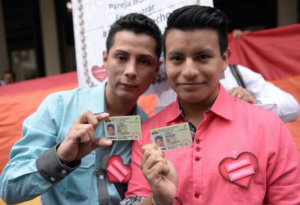 A reflection of the slow rights progress is the decree of the mayor of Quito that all bars must close at 2200h Monday-Thursday and 24h00 Friday-Saturday. Discos must close at 2400h Monday to Thursday and 0100h Friday and Saturday. Business owners are dismayed by this and are ignoring these hours.
A reflection of the slow rights progress is the decree of the mayor of Quito that all bars must close at 2200h Monday-Thursday and 24h00 Friday-Saturday. Discos must close at 2400h Monday to Thursday and 0100h Friday and Saturday. Business owners are dismayed by this and are ignoring these hours.
Despite the new rules the gay scene is relatively quiet from Sunday to Thursday anyway. But Friday and Saturday are the nights when the scene is more lively. Most of the gay places are in or near the districts of Mariscal and Colon in Quito new town. However these areas are usually not safe at night.
The gay scene in general lacks discrimination against anyone. There is no age-ism. There is also minimum ‘attitude’. The bar Quiteños is known to be quite friendly, interested in foreigners (gringos), and a fair proportion of patrons and staff speak some English. (Story edited from: Queercity Ecuador)
Grim Scene and Counter Measures
In contrast to the emerging positive scene there is a dark side of Ecuadorian gay life. A recent report from Gay Star News from Ecuadorian photo artist Paula Paredes tells a harrowing story of disguised ‘conversion’ centers in Ecuador that use brutal and coercive techniques to change gay people to being straight. Paredes reports, “In Ecuador approximately 200 facilities exist to “cure” homosexual men, women and transsexuals,’ she says in a statement about the project. Unfortunately, the majority of these centers remain open because they are disguised as treatment facilities for alcoholics and drug addicts. Imprisoned against their will, those interned are subject to emotional and physical torture, through force-feeding, beatings and corrective rape.”
For her exposé, Paredes interviewed former ‘inmates’ of some of these clinics to gather their words and feelings of the treatment they received. They reported physical abuse, isolation, forced ‘heterosexual’ behavior (for lesbians) such as wearing dresses, shoes and make-up against their will. The activist group Fundación Causana has brought this institutional scandal to the public eye with media reports and crowd-source funding. Paredes story can be read at: https://www.gaystarnews.com/article/ecuador-gay-conversion-camp/#gs.aOd7pIE.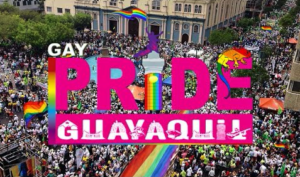
Human Rights Watch has brought pressure on institutions and enforcement agencies to act against anti-gay brutality. They posted these words in public and online: “Millions of people across the globe face imprisonment, torture, violence and discrimination because of their sexual orientation or gender identity. Greater attention from the UN and a guarantee of protection at the international level could make a difference to real lives. It is time to end the intolerable exclusion of gay and transgender people from the full protection of the UN system.”
Improved Life
For its part, the Ecuadorean government has redoubled efforts to provide educational and consciousness-raising programs for state officials in public services since June 2016 to provide better services to LGBTI people and supporting their rights to health and legal care. A training program called ‘Right to Equality and Prohibition of Discrimination Against LGBTI People’ was implemented on Gay Pride Day 2013 as a result of a meeting between authorities and LGBTI organizations. The battle against prejudice and crime and homophobia is an essential effort especially in Latino countries where the ‘machismo’ attitude is deeply embedded.
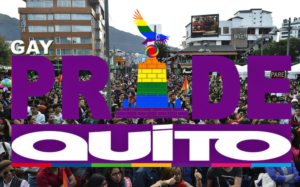 Not surprising in 21st century South America, Ecuador is split in its attitude toward gays: very conservative older generations stuck in traditional homophobia and the more progressive thinking, confident and liberal minded millennial younger citizens with awareness of larger world changes. Anti-discrimination laws on grounds of sexual orientation were introduced in Ecuador in 1998 so it became safe (not criminal) to have parties, publication and parades in public, with very little gay-bashing. The biggest gay party in Ecuador is the annual Kika white party on the beach in the town of Salinas. As well, there is a big Pride Event in Quito every June followed usually by a big party at Kika beach. Quito Pride has happened every year, since 1998. As well, other major cities in Ecuador now have big Pride festivals especially in Guayaquil, Ecuador’s largest city.
Not surprising in 21st century South America, Ecuador is split in its attitude toward gays: very conservative older generations stuck in traditional homophobia and the more progressive thinking, confident and liberal minded millennial younger citizens with awareness of larger world changes. Anti-discrimination laws on grounds of sexual orientation were introduced in Ecuador in 1998 so it became safe (not criminal) to have parties, publication and parades in public, with very little gay-bashing. The biggest gay party in Ecuador is the annual Kika white party on the beach in the town of Salinas. As well, there is a big Pride Event in Quito every June followed usually by a big party at Kika beach. Quito Pride has happened every year, since 1998. As well, other major cities in Ecuador now have big Pride festivals especially in Guayaquil, Ecuador’s largest city.
In their report on gay Ecuador, travel writers (and spouses) Stefan and Sebastien interviewed a local gay man (https://www.huffingtonpost.com/entry/what-is-gay-life-like-in-ecuador_us_586a4e94e4b014e7c72ee2c7) who suggested the town of Montañita as a appealing place to be. “This is a village by the coast, popular with surfers, famous for its bohemian vibe and very liberal attitude. It’s like our own Las Vegas: anything goes!…when I visited Montañita with my ex-boyfriend, we felt extremely comfortable walking down the streets holding hands and being docile with each other in public. It also has a lot of foreigners here, especially from Argentina, Chile, USA and Europe.”
Modernity in Unexpected Places
As the expression goes, ‘we are everywhere’ and this includes the enormous Amazonian territories in northern South America. In their well researched report, ‘Sexual Modernity in Amazonia’ (http://www.e-ir.info/2015/07/02/sexual-modernity-in-amazonia/)
The researchers continued, “for Tikuna women what is detrimental to their culture is the foreign imposition of religions by non-Indigenous missionaries. Metchincüna blames discrimination on dogmatic religious intervention: “it cannot be wrong, if it were it should have been since the beginning and not something new. Those are people who truly love each other, who understand each other. Our ancestors experienced people living homo-affective lives but never interpreted it as something malicious, it is religion that came to interfere with our culture trying to evangelize us, arguing with the need to know God.”
“There is nothing foreign about sexual diversity in Amazonia, even if it invokes the legitimacy of global practices. Sexual diversity is neither a novel phenomenon nor a global import. It has long existed in Amazonia. In Tikuna language, Kaigüwecü is the word that describes a man who has sex with 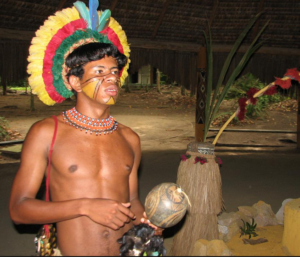 another man; Ngüe Tügümaêgüé that for a woman who has sex with another woman…Indigenous queerness is tangible even where it lacks formal conceptualization with wording.”
another man; Ngüe Tügümaêgüé that for a woman who has sex with another woman…Indigenous queerness is tangible even where it lacks formal conceptualization with wording.”
Indigenous queerness is tangible even where it lacks formal conceptualization with wording. Tikuna peoples are cosmopolitan while maintaining and valuing their origins. Their sexual politics are not about modernity nor should we invoke colonial narratives to validate them. Amazon politics, Indigenous and non-Indigenous, disrupt rather than reiterate conventional narratives of modernity. That is, they counteract the notion that foreign tribes have adopted modern western ways.
In truth queerness exists in places and tribes and politics beyond the Western models; it includes (does not create) existing Amazonian societies like the Tikuna, it is a story that suggests a cosmopolitan Amazon that counters ideas of an isolated wilderness scarcely inhabited by peoples without history. Instead it reveals communities that creatively and uniquely connect with global norms within local Indigenous systems of sexual rights.
Amazonian Queerness moves beyond categorizations and political borders. It sheds light on the complementarity of queer and Indigenous perspectives for thinking global modernity.
In this sense modern Ecuador seems somewhat similar to modern Europe with its old traditions, homophobia-cum-progressive laws, it places for play, public Pride events and beach cities–and it has furry lamas.
Also see:http://sxpolitics.org/sexual-politics-in-ecuador-in-the-2000s-a-birds-eye-view/17140
https://www.huffingtonpost.com/entry/what-is-gay-life-like-in-ecuador_us_586a4e94e4b014e7c72ee2c7
http://www.retire-in-ecuador.com/gay-life-in-ecuador.html
https://www.globalgayz.com/frugal-travel/932/

